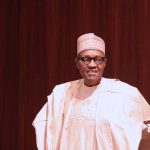Nigeria’s Total Debt Profile Stands at $64billion –DMO
Business News, Latest Headlines Thursday, December 10th, 2015
Ayodele Afolabi, Abuja
The total debt profile of Nigeria presently stands at $64billion , the Director General of the Debt Management Office ( DMO), Dr Abraham Nwankwo has said
Nwankwo who made the disclosure while making submission on the Nation’s debt profile before the Senate Committee on Foreign and Local Debts, however allayed the fears of Nigerians that the rising debt profile of the country will not affect the economy in negative perspective.
He also explained that the N1.2 trn domestic borrowing and foreign loan of N635.88bn proposed in the Medium Term Expenditure Framework for the 2016 fiscal, was also healthy for the nation’s economy.
He stated further that 84 percent of the entire debt profile was owed locally while the remaining 16 percent was foreign loan.
According to him, the nation needed $25bn per annum continuously for the next ten years in order to effectively tackle its infrastructural deficit.
He nevertheless explained that debts owed local contractors were not part of the domestic debts quoted because their details are under the purview of the budget office of the federation, and National Planning, because they are operational debts.
He added that local contractors debts arose from the activities of agencies, in terms of implementation of capital expenditures.
He said, “Ordinarily if the implementation of the budget is followed in details, there is no reason why there should be local contractors debt because it is already in the budget.
“We have been sensitising Nigerians that we need to do better because our tax GDP ratio is very low compared to countries in our debt role, their entire GDP ratio is about 18 percent whereas for Nigeria, it is about 6 percent which means that we are not being effective in collecting taxes to reflect the size of our economy.
“This has implications for debt service. Certainly there is need to be careful even though there is space we need to relate debt service to revenue. The solution is that we have a big gap to fill because when we move upward from the 6 percent tax GDP ratio, we will have a lot of money to solve our problems including servicing our debts.
“For now our debt servicing GDP ratio is still very low but we are optimistic because there is room to collect tax from the existing level of economic activities”.
On the proposed borrowing in the Medium Term Expenditure Framework for the 2016 fiscal year, the DMO boss said government projection was in the right direction.
His words: ” Even before the collapse of the oil prices, it has been estimated, more than five years ago that Nigeria needed a minimum of $25bn per annum continuously for up to 10 years to enable it to close its infrastructure deficit.
“That has been established by all relevant experts, and institutions. In addition, the collapse of the oil prices by our own estimate shows that public revenue from oil had dropped by about $16bn per annum.
“In this type of situation, what a responsive government should do, and which is what our government is doing is to make sure that cataract a continuos decline in economic activities.
“Borrowing is being done to achieve positive impact on the economy, it will lead to growth, creation of employment, and build solid capacity for the future which will help us to diversify our economy.
“What the government is planning to do now is to explore at least five out of the 34 solid minerals that we have. We will develop, and process them for export.
“From the Debt Management Office perspective, the MTEF / FSP as presented to the National Assembly, is perfect for the times and a good recipe for dealing with the challenges of the collapse of the oil prices and the need to rapidly develop and diversify the economy, build infrastructure”
He further assured that the proposed borrowing and exploration of other sources of revenue, would act as as a strong base for growth in agriculture, solid minerals, petrochemical and others.
He said the oil and gas were still useful in the sense that the nation could re-process them to manufacture other products like fertilizers, and plastics, among others that would even have more positive impact on the economy than exporting crude.
He said for a country to achieve a sustainable development, it should not rely onlyon a single source, saying ‘aside revenue generated, there are openings in local and international borrowimg. If we must borrow, we must have options. Whatever we do also take into account the federal nature of the governmdnt. That is the reason each state has its own department of debt management.”.
He said most of the loans taken by Nigerians are 40 years but that a good thing was that they were spaced.
Chairman of the senate committee on foreign and local debt, Senator Shehu Sani, commended the federal government initiative aimed at finding alternative revenue to oil.
He, however, canvassed stiffer punishment for any individual or agency of government that misapplied foreign or local loans meant to improve the living standards of Nigerians.
Related Posts
Short URL: https://www.africanexaminer.com/?p=28496




















